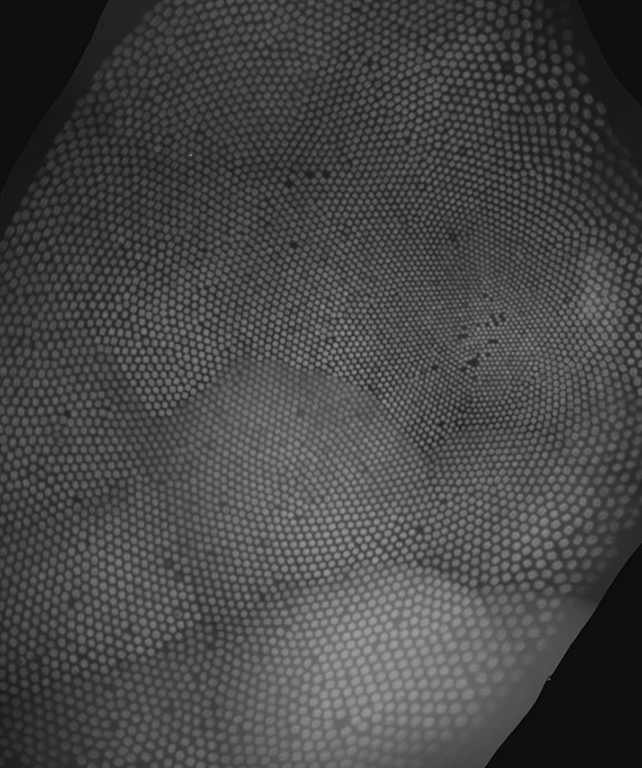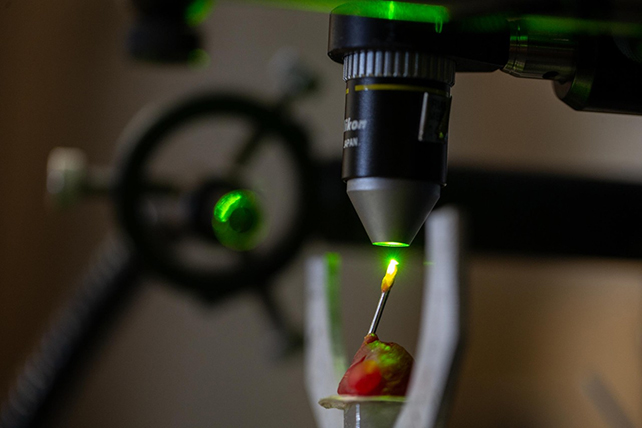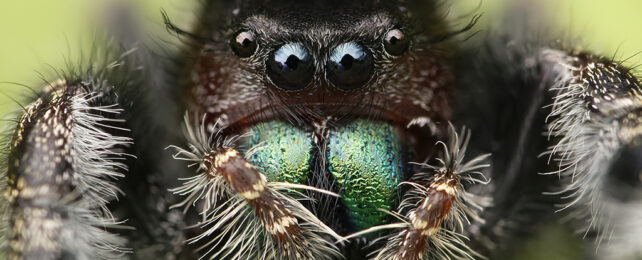We all know that hunger can affect us mentally and physically, and a new study of spiders reveals that these creepy crawlies can start to lose critical parts of their vision if they go without sustenance for too long.
The vision loss observed in this study is not too dissimilar to age-related macular degeneration (AMD) in humans. By understanding more about it, experts might be able to develop improved treatments for the condition.
Researchers looked at the bold jumping spider (Phidippus audax), a common species that relies very much on light-sensitive photoreceptors in its large eyes to spot prey. When the spiders don't get enough nutrients, these photoreceptors can be lost.

"Photoreceptors are energetically costly," says biologist Elke Buschbeck from the University of Cincinnati. "It's hard to keep up with their energy needs."
"If you deprive them of nutrition, the system fails. It's the functional equivalent of the macula in our eyes."
The researchers used a customized ophthalmoscope to study retinal damage in spiders' anterior lateral eyes (ALEs): Nine nutrient-deprived spiders were compared with 12 control spiders to check for photoreceptor density distribution.

Damage was mostly in the part of the eye where the photoreceptors were most densely packed, with minimal damage elsewhere. The spiders given a limited diet were also smaller overall, which is to be expected.
The way that the photoreceptors are lost matches up quite well with the macula, the part of the human eye that processes what's right in front of us. The human body's metabolism has been linked to vision issues before, though the details aren't clear.
"To be able to say anything about how this may inform treatments in people, first carefully designed studies would need to tease out which exact nutrients are involved, which may depend on environmental conditions and other factors," says biologist Annette Stowasser from the University of Cincinnati.
"However, that nutrient deprivation can have the shown effect indicates the importance of paying close attention to the effects of nutrients."
The researchers didn't begin their spider study wanting to look at the link between nutrition and eyesight, but that's the direction they took after noticing dark spots on the photoreceptors of some of the spiders they were observing.
Statistics from 2014 suggest that around 8.7 percent of the human population worldwide has some form of AMD, leading to vast amounts of money spent on related healthcare. It gets worse with time and can result in serious vision loss.
Around 85-90 percent of cases involve the loss of photoreceptors in the eye. Causes are thought to include genetics, high blood pressure, and obesity – and it seems we might be able to add nutrition to that list as well.
"Wouldn't it be wild if a breakthrough in macular degeneration treatments for humans was inspired by work on jumping spiders common to backyards across the United States?" says biologist Nathan Morehouse from the University of Cincinnati.
"Sometimes answers to challenging problems can come from unexpected places."
The research has been published in Vision Research.
